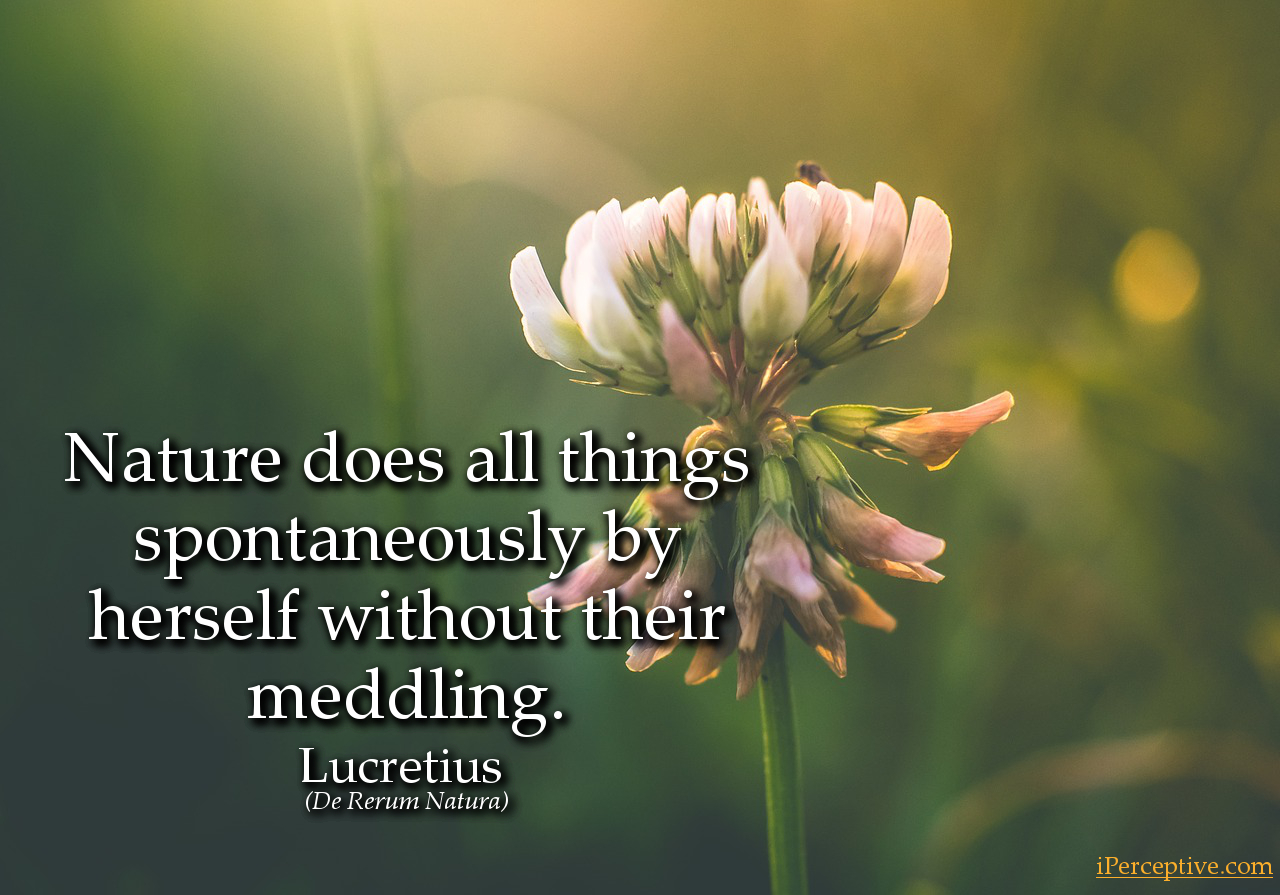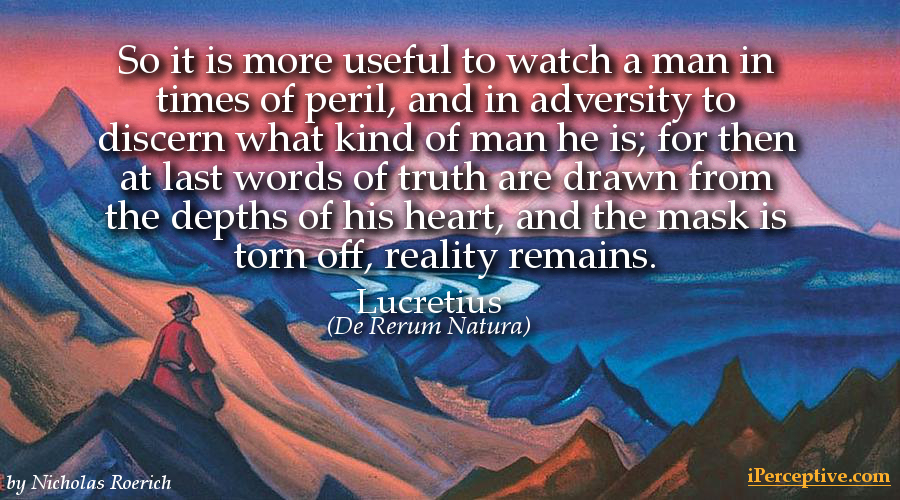Lucretius Quotes
Truths kindle light for truths.
Life is one long struggle in the dark.
Nothing can be created from nothing.
How many evils have flowed from religion.
Constant dripping hollows out a stone.
Victory puts us on a level with heaven.
Fear was the first thing on earth to make gods.
What is food to one, is to others bitter poison.
Such evil deeds could religion prompt.
What once sprung from the earth sinks back into the earth.
Men are eager to tread underfoot what they have once too much feared.

Nature does all things spontaneously by herself without their meddling.
Such are the heights of wickedness to which men are driven by religion.
The generations of living things pass in a short time, and like runners hand on the torch of life.
The greatest wealth is to live content with little, for there is never want where the mind is satisfied.
Violence and injury enclose in their net all that do such things, and generally return upon him who began.
So far as it goes, a small thing may give analogy of great things, and show the tracks of knowledge.
One thing never ceases to arise out of another, and to no one is life given as a freehold, but to all on lease.
Though the dungeon, the scourge, and the executioner be absent, the guilty mind can apply the goad and scorch with blows.
Therefore death is nothing to us, it matters not one jot, since the nature of the mind is understood to be mortal.
The vivid force of his mind prevailed, and he fared forth far beyond the flaming ramparts of the heavens and traversed the boundless universe in thought and mind.
If men saw that a term was set to their troubles, they would find strength in some way to withstand the hocus-pocus and intimidations of the prophets.
From the heart of the fountain of delight rises a jet of bitterness that tortures us among the very flowers.
Variant: From the very fountain of enchantment there arises a taste of bitterness to spread anguish amongst the flowers.
Variant: In the midst of the fountain of wit there arises something bitter, which stings in the very flowers.

So it is more useful to watch a man in times of peril, and in adversity to discern what kind of man he is; for then at last words of truth are drawn from the depths of his heart, and the mask is torn off, reality remains.
Do you not see even stones yield to the power of time, lofty towers fall to decay, and the rocks molder away? Temples and statues of the gods go to ruin, nor can the gods themselves prolong their date or get reprieve from fate.
For as children tremble and fear everything in the blind darkness, so we in the light sometimes fear what is no more to be feared than the things children in the dark hold in terror and imagine will come true.
It was certainly not by design that the particles fell into order, they did not work out what they were going to do, but because many of them by many chances struck one another in the course of infinite time and encountered every possible form and model.
Thus the sum of things is ever being reviewed, and mortals dependent one upon another. Some nations increase, others diminish, and in a short space the generations of living creatures are changed and like runners pass on the torch of life.
Yes, to seek power that's vain and never granted
and for it to suffer hardship and endless pain:
this is to heave and strain to push uphill
a boulder, that still from the very top rolls back
and bounds and bounces down to the bare, broad field.
Pleasant it is, when over a great sea the winds trouble the waters, to gaze from shore upon another's great tribulation; not because any man's troubles are a delectable joy, but because to perceive you are free of them yourself is pleasant.
Even if I knew nothing of the atoms, I would venture to assert on the evidence of the celestial phenomena themselves, supported by many other arguments, that the universe was certainly not created for us by divine power: it is so full of imperfections.
And yet it is hard to believe that anything
in nature could stand revealed as solid matter.
The lightning of heaven goes through the walls of houses,
like shouts and speech; iron glows white in fire;
red-hot rocks are shattered by savage steam;
hard gold is softened and melted down by heat;
chilly brass, defeated by heat, turns liquid;
heat seeps through silver, so does piercing cold;
by custom raising the cup, we feel them both
as water is poured in, drop by drop, above.
Lucretius Top Quotes


